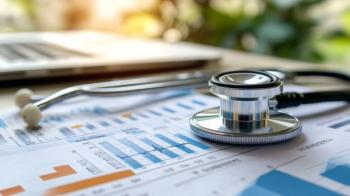
Biosimilars May Save Money. But Have They Lowered Out-of-Pockets?
Research published in JAMA Health Forum shows that biosimilar savings have not trickled down to out-of-pocket savings for patients.
A recent study suggested biosimilars have failed to reduce patient out-of-pocket costs (OOP), but by other measures biosimilars have saved the healthcare system money and improved patient access. So, what conclusion should be drawn?
In the study, which was published in JAMA Health Forum in March 2024, lead author study author Kimberly Feng, M.D., of the Division of Pharmacoepidemiology and Pharmacoeconomics at Brigham and Women’s Hospital in Boston and her co-author reported that once biosimilar competition began for seven originator biologics, OOP costs remained stable or increased, while patients on biosimilars did not pay lower OOP than patients on originator biologics.
There were wide variations in results among the seven biologics studied, but the overall, biosimilars, first marketed in the United States in 2015, haven't made biologics any more affordable for patients.
Why? The devil is in the details.
Much has to do with the way biosimilar legislation has been crafted. It created a pathway for biosimilar manufacturers to bring their highly similar copies of originator biologics to market. This competition has caused prices to decline — dramatically in some instances — while sales of these biologics have increased, reaching more patients.
The U.S. biologics market overall has seen 12.5% annual growth over the past 5 years, according to IQVIA. Biosimilars introduced in 2019 have led to average sales price reductions of $2,526 to $4,913, which is “potentially a factor in their high uptake,” IQVIA reported.
In producing their findings on patient OOP costs, Feng and her colleagues did not have to pry open the black box of biologics pricing dynamics, which if illuminated would show how the actual savings are being divvied up among providers, payers and manufacturers.
One prominent commentator said that the discussion has become a debate over priorities.
“These findings raise important questions about what patients ought to expect from biosimilars going forward, especially as broader, more direct strategies to tackle the financial burden of high brand-name drug prices come into focus,” Andrew W. Mulcahy, Ph.D., M.P.P., a senior health economist at Rand, wrote in a companion editorial in JAMA Health Forum.
In 2021, biologics comprised 46% or $260 billion of the $568 billion annual spend on prescription drugs, according to IQVIA, although just 2% of prescription-taking patients use them, according to the American Medical Association.
The off-stated primary purpose of the biosimilars approval pathway is to head off the mounting cost of biologics to avoid overwhelming payer systems. It was Mulcahy, in fact, who served as lead author on the 2018 Rand report that predicted $54 billion in biosimilar savings between 2017 and 2026. Time is running out to reach that target.
Just 10 biologics faced biosimilar competition as of January 2024, and biosimilars in the United States have saved just $13 billion to date, according to Feng and her co-authors.
IQVIA, in its broad 2023 assessment of biosimilar savings — which did break out OOP costs — optimistically projectd between $20 billion and $49 billion in biosimilar savings in 2027, and overall biosimilar savings of over $180 billion over the next five years.
However, there is evidence, albeit slim, that the healthcare industry can have its cake and eat it too — higher sales of biosimilars and originator biologics plus lower OOP costs for patients.
“One promising sign from our data was a signal toward lower OOP costs after entry of newer biosimilars such as trastuzumab and rituximab, although more data are needed to determine if this trend will continue,” Feng and her colleagues wrote.
Newsletter
Get the latest industry news, event updates, and more from Managed healthcare Executive.

























